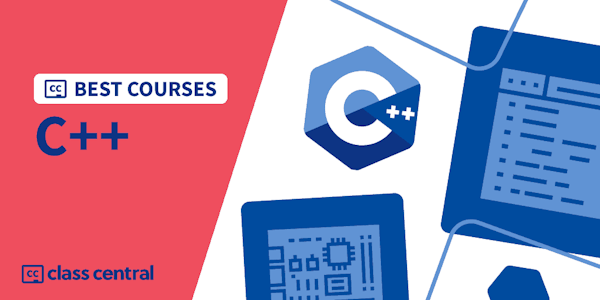This course will soon be retired. Last day to enroll is 12/31/2022 at 00:00 UTC.
This is the 2nd course in the intermediate undergraduate-level offering in the larger Programming and Data Structures MicroBachelors program. We recommend taking them in order, unless you have a background in these areas already and feel comfortable skipping ahead.
- Introduction to Programming in C++
- Advanced Programming in C++
- Introduction to Data Structures
- Advanced Data Structures
These topics build upon the learnings that are taught in the introductory-level Computer Science Fundamentals MicroBachelors program, offered by the same instructor.
This is a self-paced course that continues in the development of C++ programming skills. Among the topics covered is the development of more advanced command-line programs that utilize functions, arrays, and strings to solve problems. Students learn to program in C++ through the lectures and the labs. C++ programming material is presented over eight weeks of interactive lectures with bi-weekly quizzes to assess your understanding of the material Students will experience hands-on practice writing C++ programs through twelve lab challenges.
Students will not only learn to use these more advanced procedural programming functionalities. They will also learn to analyze the computational complexity of their code. Computational complexity theory focuses on classifying computational problems according to their inherent difficulty and relating these classes to each other. A computational problem is a task solved by a computer. A computation problem is solvable by the mechanical application of mathematical steps, such as an algorithm.
A problem is regarded as inherently difficult if its solution requires significant resources, whatever the algorithm used. The theory formalizes this intuition by introducing mathematical models of computation to study these problems and quantifying their computational complexity, i.e., the number of resources needed to solve them, such as time and storage.




